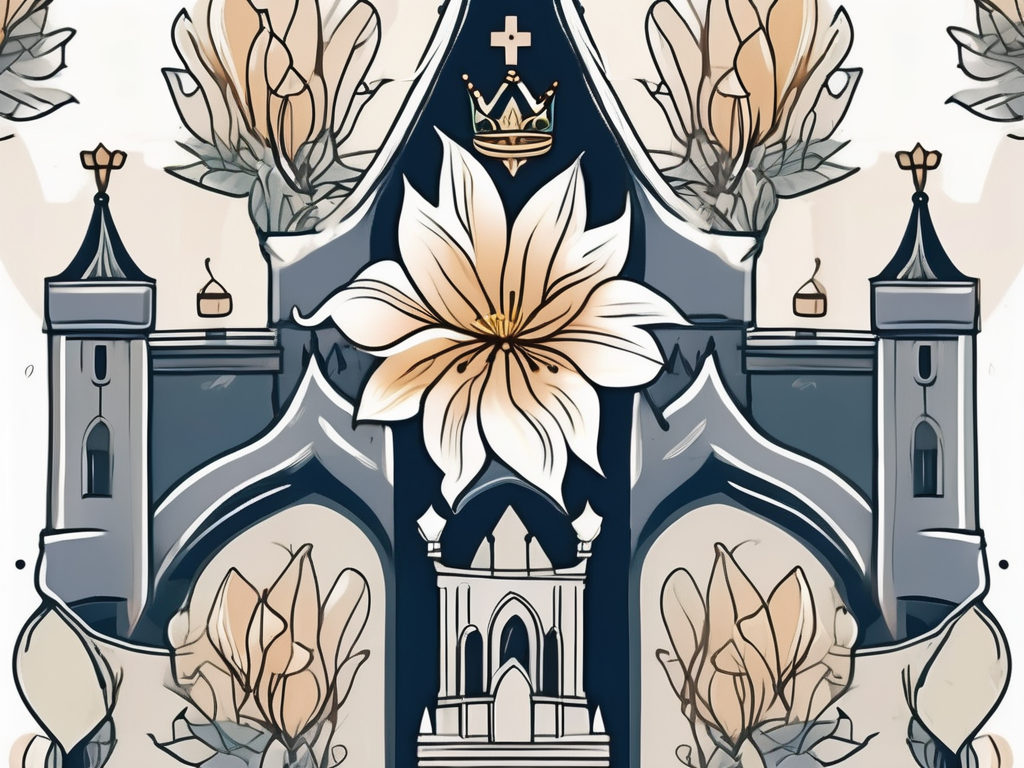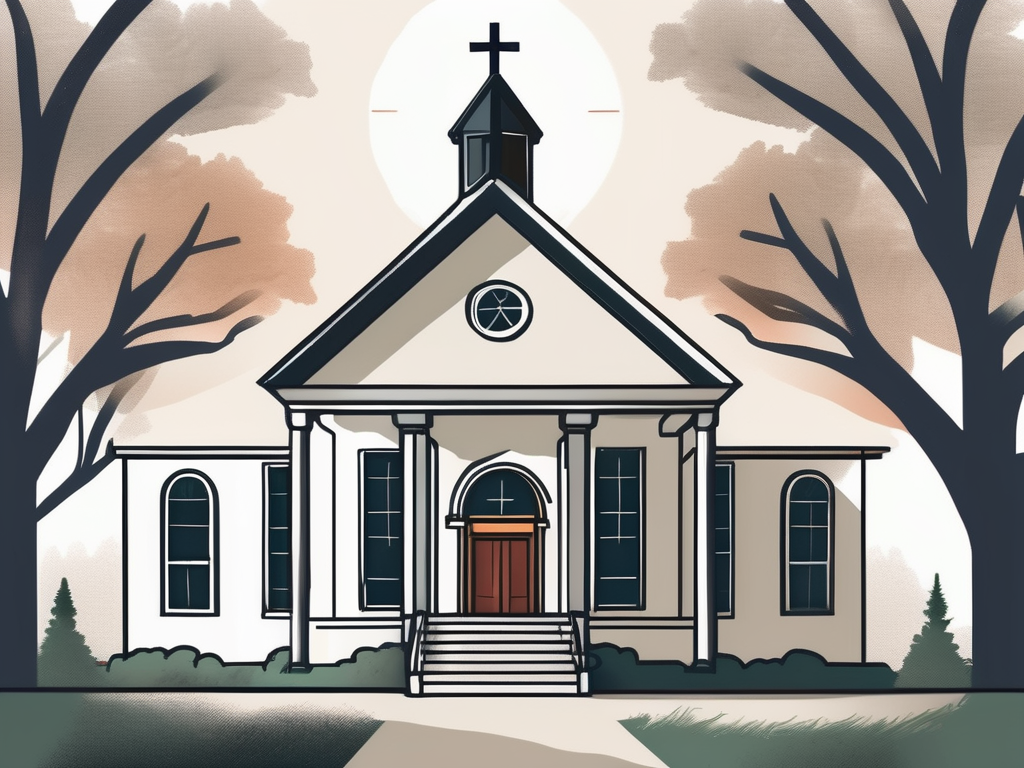Saint John the Baptist was a significant figure in Christianity, known for his pivotal role in the life of Jesus Christ. His life and teachings left a lasting impact on the faith, and his legacy continues to be revered to this day. This article explores the various aspects of Saint John the Baptist’s life, from his early years to his influence on Christianity and his depiction in art and literature.
Early Life of Saint John the Baptist
Let’s dive into the early life of Saint John the Baptist. Born to devout parents, Elizabeth and Zechariah, John’s birth was considered miraculous due to his parent’s old age. It was said that the angel Gabriel visited Zechariah and foretold John’s birth, instructing him to name the child John. This divine connection was a sign of the extraordinary path that John was destined to follow.
In his youth, John spent time in the desert, studying the scriptures and engaging in deep spiritual practices. This period of solitude and reflection would later shape his ministry and teachings.
As John grew older, he became known for his ascetic lifestyle and his commitment to living a simple and humble life. He wore garments made of camel’s hair and survived on a diet of locusts and wild honey. This austere way of life allowed him to detach himself from worldly distractions and focus solely on his spiritual journey.
John’s deep connection with nature was evident in his choice of dwelling place. He made his home in the wilderness, far away from the bustling cities and towns. Surrounded by the beauty and serenity of nature, John found solace and inspiration for his teachings.
During his time in the desert, John developed a reputation as a powerful and charismatic preacher. People from all walks of life would flock to hear his words, drawn by his magnetic presence and the wisdom he imparted. His teachings emphasized repentance, urging individuals to turn away from their sinful ways and seek forgiveness.
John’s impact extended beyond his captivating sermons. He also practiced baptism as a symbolic act of purification and renewal. Those who sought spiritual transformation would come to John, confess their sins, and be immersed in the waters of the Jordan River. This act of baptism represented a fresh start, a chance to leave behind their past transgressions and embrace a new life dedicated to God.
As John’s following grew, so did his influence on society. His message of repentance and the imminent arrival of the Messiah resonated deeply with the people, stirring a sense of anticipation and hope. Many believed that John was the long-awaited prophet who would pave the way for the coming of the Messiah.
However, John remained humble and steadfast in his mission. He made it clear that he was not the Messiah but merely a messenger preparing the way for the one who was to come. He proclaimed, “I baptize you with water for repentance. But after me comes one who is more powerful than I, whose sandals I am not worthy to carry. He will baptize you with the Holy Spirit and fire.”
John’s unwavering dedication to his calling eventually caught the attention of King Herod Antipas. Herod, intrigued by John’s popularity and influence, invited him to his court. However, John fearlessly confronted Herod about his unlawful marriage to Herodias, his brother’s wife. This bold act of speaking truth to power ultimately led to John’s imprisonment.
Despite his confinement, John’s legacy continued to grow. His disciples carried on his teachings, spreading his message of repentance and preparing the way for the Messiah. John’s life serves as a testament to the power of faith, humility, and unwavering commitment to one’s calling.
The Ministry of John the Baptist
John the Baptist’s ministry was characterized by his powerful message and teachings. He preached about repentance and the need for spiritual renewal, urging people to turn away from their sinful ways and seek forgiveness. His words resonated deeply with the hearts of the people, stirring within them a desire for a fresh start, a chance to be cleansed from their transgressions.
As John stood on the banks of the Jordan River, his voice carried through the air, reaching the ears of those who were hungry for spiritual truth. The crowds gathered around him, their faces filled with anticipation and longing. They yearned to hear his words, to be touched by his message of hope and redemption.
With a voice that echoed with authority, John proclaimed the urgency of repentance. He spoke of the need to turn away from the path of destruction and embrace a life of righteousness. His words were like a beacon of light in a world shrouded in darkness, guiding lost souls back to the path of God’s love and mercy.
People from all walks of life were drawn to John’s ministry. The rich and the poor, the powerful and the humble, all found themselves captivated by his words. They recognized in him a messenger sent from God, a voice crying out in the wilderness, preparing the way for the coming of the Messiah.
One of the most significant events in John’s ministry was the baptism of Jesus. Recognizing Jesus as the long-awaited Messiah, John baptized him in the Jordan River. As the waters of the river flowed over Jesus’ body, a profound spiritual connection was established. It was a moment of divine significance, marking the beginning of Jesus’ public ministry and affirming his role as the Savior of humanity.
The baptism of Jesus was a powerful symbol of purification and rebirth. It represented the washing away of sins and the emergence of a new life in Christ. Through this act, John not only fulfilled his role as the forerunner of Jesus but also revealed the transformative power of God’s grace.
News of John’s ministry spread like wildfire, reaching the far corners of the land. People traveled from near and far to witness the miracles and hear the teachings of this extraordinary man. They came with hearts burdened by guilt and shame, seeking solace and forgiveness. And in the presence of John, they found hope.
John’s ministry was not without its challenges. He faced opposition from religious leaders who questioned his authority and sought to undermine his influence. Yet, John remained steadfast in his mission, undeterred by the obstacles that stood in his way. His unwavering commitment to proclaiming the truth inspired countless others to follow in his footsteps, to embrace a life of repentance and spiritual renewal.
John the Baptist’s ministry was a testament to the power of one person’s voice to ignite a spiritual awakening. Through his teachings and baptisms, he paved the way for the coming of Jesus, preparing hearts and minds for the arrival of the Messiah. His legacy lives on, reminding us of the importance of repentance, forgiveness, and the transformative power of God’s love.
Imprisonment and Martyrdom
Unfortunately, John’s strong words and criticism of the ruling authorities did not sit well with everyone. Herod Antipas, the ruler of Galilee, became increasingly threatened by John’s growing popularity and influence. This led to John’s eventual imprisonment.
As John languished in his prison cell, his spirit remained unbroken. He continued to inspire and teach his followers, even in the darkest of times. The walls that confined him could not contain his unwavering faith and dedication to his mission.
Word of John’s imprisonment spread like wildfire throughout the region. People from all walks of life, from the humblest peasants to the wealthiest merchants, flocked to the prison walls, desperate to catch a glimpse of the man who had dared to challenge the powers that be. They came seeking wisdom, guidance, and a glimmer of hope in a world that seemed increasingly bleak.
Inside the prison, John’s voice echoed through the corridors, reaching the ears of those who sought solace and enlightenment. His words were like a balm to their weary souls, offering them a renewed sense of purpose and strength to carry on in the face of adversity.
However, John’s imprisonment would ultimately lead to his martyrdom. Herod, influenced by the request of his stepdaughter Salome, ordered John’s execution. The news sent shockwaves through the land, as if the very earth itself trembled in mourning for the loss of such a beloved figure.
John’s death was a tragic loss for his followers, who mourned the passing of their revered leader. Yet, even in death, John’s legacy lived on. His martyrdom only served to solidify his status as a beacon of righteousness and a symbol of unwavering faith.
The story of John’s imprisonment and martyrdom spread far and wide, becoming a source of inspiration for countless generations to come. His unwavering courage and steadfast commitment to his beliefs became a guiding light for those who found themselves facing their own trials and tribulations.
Even today, the memory of John the Baptist lives on, a testament to the power of conviction and the enduring legacy of a man who dared to speak truth to power. His story serves as a reminder that even in the face of oppression and persecution, the human spirit can never be truly extinguished.
Influence on Christianity
Saint John the Baptist played a crucial role in preparing the way for Jesus’ ministry and shaping the foundations of Christianity. He acted as a bridge between the Old and New Testaments, symbolizing the transition from the era of prophets to the coming of the Messiah.
Furthermore, John’s practice of baptism and his message of repentance laid the groundwork for the sacrament of baptism in Christianity. Even today, baptism continues to be an essential ritual that signifies one’s faith and dedication to Christ.
Saint John the Baptist in Art and Literature
The life of Saint John the Baptist has been a subject of fascination for artists and writers throughout history. His remarkable story and spiritual significance have inspired countless works of art and literature.
Religious art often depicts John the Baptist in various forms, from his birth to his baptism of Jesus. These artistic representations serve as reminders of John’s pivotal role in Christianity and invite contemplation of his teachings.
John’s life and legacy have also found their way into literature and popular culture. References to him can be found in numerous literary works, both religious and secular. His compelling story continues to captivate the imaginations of people worldwide.
Conclusion
Saint John the Baptist’s life and legacy leave an indelible mark on Christianity. From his miraculous birth to his powerful ministry and unfortunate martyrdom, John’s story serves as a source of inspiration and reflection. His teachings and his role in baptizing Jesus have had a significant influence on early Christianity and continue to shape the faith today. Through art and literature, John’s story lives on, reminding us of the importance of repentance, faith, and the unwavering quest for spiritual renewal.












